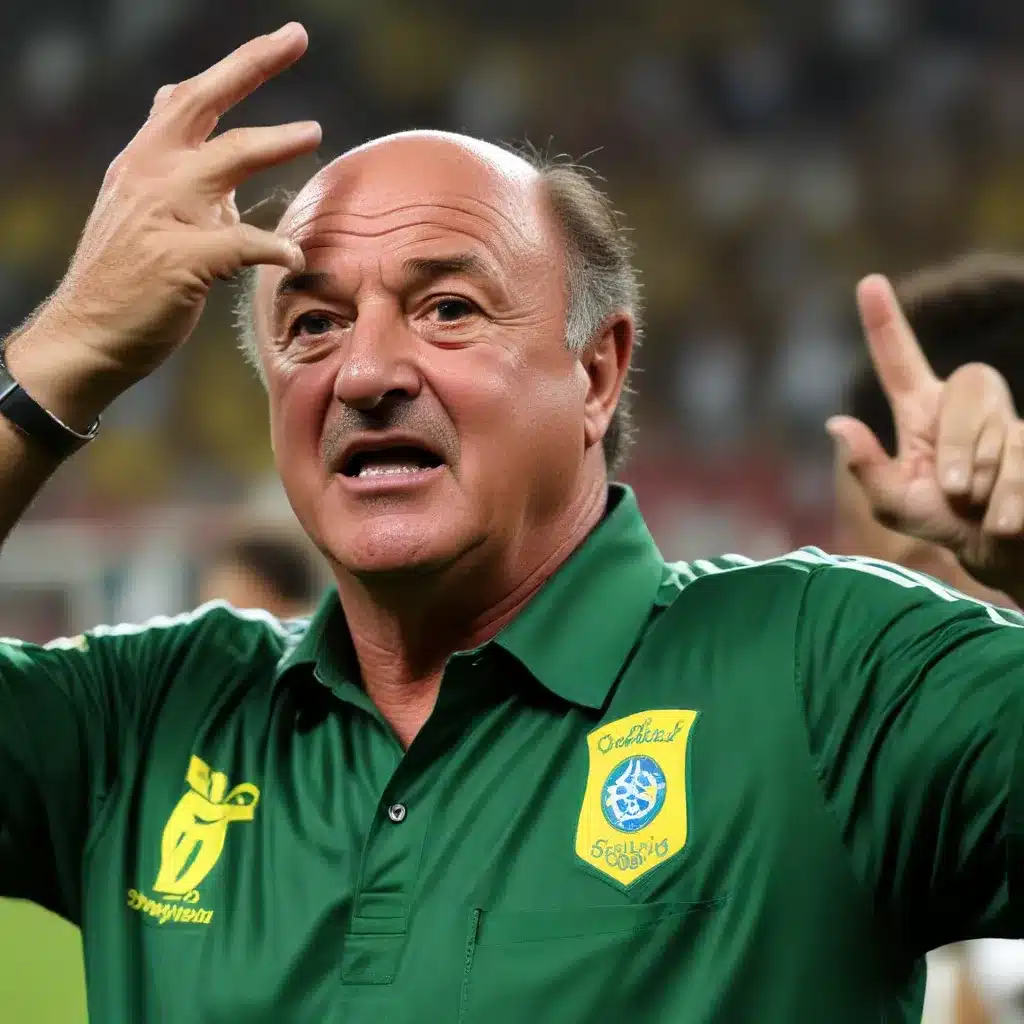
Luiz Felipe Scolari: The Pragmatic Tactician Who Led Brazil to Glory
Football in Brazil
Football is more than just a sport in Brazil – it’s a national obsession, a cultural touchstone, and a source of immense pride. The Brazilian national team, known affectionately as the Seleção, has long been the embodiment of this fervent passion, captivating audiences worldwide with their jogo bonito (the beautiful game) philosophy. But beneath the flair and creativity, there exists a rich tapestry of domestic leagues, influential coaches, and tactical evolutions that have shaped the Brazilian game.
The Brazilian National Team
The Seleção’s illustrious history is marked by indelible moments of triumph, from Pelé’s dazzling displays in the 1958 and 1970 World Cup victories, to the mesmerising tiki-taka of the 1982 team, often hailed as one of the greatest sides never to win the tournament. Yet, amidst this tapestry of attacking virtuosity, one man stands out as the pragmatic tactician who led Brazil to glory in the 21st century: Luiz Felipe Scolari.
Major Domestic Leagues
Beyond the national team, Brazil’s domestic football landscape is a rich and diverse ecosystem. The Brasileirão, the top-flight league, is renowned for its competitiveness, passionate fan bases, and the production of world-class talent. Complementing the national championship are the various state-level competitions, such as the Campeonato Paulista and Campeonato Carioca, which have long served as breeding grounds for the country’s footballing giants.
Influential Coaches
Brazil has produced a veritable pantheon of influential coaches, from the visionary Tele Santana and his jogo bonito philosophy, to the tactical innovator Vanderlei Luxemburgo. Yet, amongst this esteemed group, Luiz Felipe Scolari, affectionately known as “Big Phil”, has carved out a unique and enduring legacy.
Scolari’s Coaching Career
Early Years
Scolari’s journey to the pinnacle of Brazilian football began in the early 1980s, when he took charge of modest clubs like CSA-AL and Caxias RS. During this formative period, Scolari’s pragmatic approach to the game began to take shape, as he favoured a disciplined, organised defensive structure over the flamboyant attacking play that had become the national obsession.
Triumphs with the Brazilian National Team
Scolari’s big break came in 2001, when he was appointed as the manager of the Brazilian national team. Tasked with leading the Seleção to glory at the 2002 World Cup, Scolari made a series of bold decisions, including the controversial omission of the legendary Romário from the squad. Trusting in a core of experienced players like Rivaldo and Ronaldo, as well as the emerging talent of Ronaldinho, Scolari crafted a well-drilled, counter-attacking side that defied expectations and won the World Cup, cementing his status as a national hero.
Subsequent Roles and Achievements
Following his World Cup triumph, Scolari’s reputation as a pragmatic, no-nonsense tactician continued to grow. He enjoyed successful spells with the Portuguese national team, leading them to the final of Euro 2004 and a fourth-place finish at the 2006 World Cup. Scolari then took on the challenge of managing some of Europe’s top clubs, including Chelsea and Guangzhou Evergrande, where he won multiple domestic and continental titles.
Scolari’s Tactical Approach
Pragmatic and Adaptable
Scolari’s tactical philosophy is often characterised as pragmatic and adaptable, with a focus on defensive solidity and clinical counter-attacking. Rather than relying on free-flowing, possession-based football, Scolari’s teams typically employed a well-drilled 4-4-2 formation, with a solid defensive block and disciplined, hardworking midfielders providing a platform for clinical forwards to thrive.
Emphasis on Team Cohesion
One of Scolari’s key strengths as a manager was his ability to forge a strong team spirit and sense of unity within his squads. He was often described as a “father figure” to his players, creating an environment of loyalty and companionship that helped to bring the best out of his teams. This emphasis on team cohesion was a crucial element of Scolari’s success, as it allowed his well-organised, disciplined systems to function effectively.
Integration of Brazilian Football Philosophy
While Scolari’s tactical approach may have differed from the traditional Brazilian emphasis on creative, attacking football, he was still able to integrate elements of the jogo bonito into his teams. His World Cup-winning Seleção side in 2002, for example, blended pragmatic defensive organisation with the individual brilliance of players like Rivaldo and Ronaldinho, showcasing the ability to adapt the Brazilian footballing philosophy to suit his pragmatic approach.
Scolari’s Legacy
Impact on Brazilian Football
Scolari’s impact on Brazilian football extends far beyond his individual achievements. By leading the national team to World Cup glory in 2002, he challenged the prevailing notion that the Seleção must always play a flamboyant, attacking brand of football. His pragmatic approach, while initially met with scepticism, ultimately proved successful and demonstrated that there was more than one path to success for the Brazilian national team.
Influence on Future Generations
Scolari’s legacy has also been felt in the development of subsequent generations of Brazilian coaches and players. His emphasis on team cohesion, defensive organisation, and the ability to adapt to different challenges has inspired many of his proteges, who have gone on to carve out successful managerial careers of their own. In this way, Scolari’s influence continues to shape the evolution of Brazilian football, even as the game continues to evolve.
Enduring Reputation as a Pragmatic Tactician
Despite the occasional setbacks, such as the 7-1 defeat to Germany in the 2014 World Cup, Scolari’s reputation as one of Brazil’s most successful and influential managers remains firmly intact. His pragmatic, no-nonsense approach may not have always endeared him to the purists of the jogo bonito, but his ability to win trophies and achieve success at the highest level has cemented his status as a true legend of the Brazilian game.
As the Brazilian football landscape continues to evolve, the legacy of Luiz Felipe Scolari will undoubtedly continue to be felt, serving as a testament to the enduring power of pragmatic, disciplined football in a country that has long been synonymous with the beautiful game.

